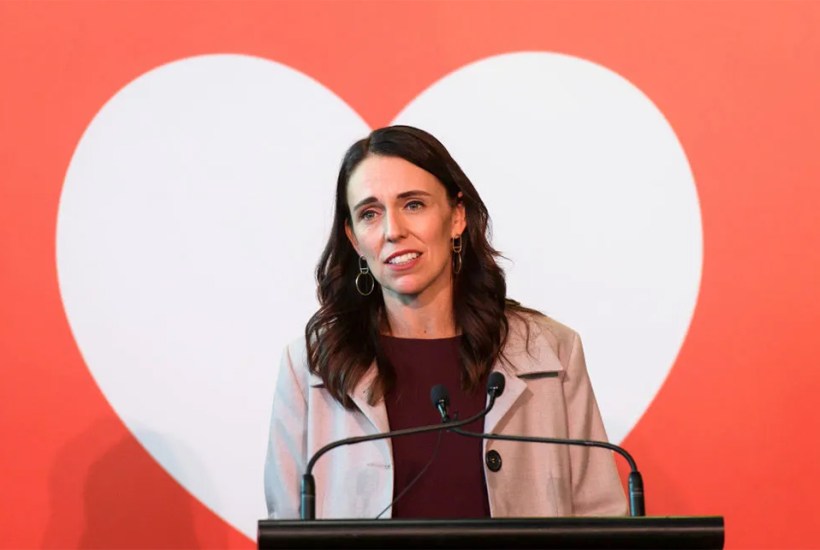Back in the 1970s, a less politically correct age, there was a standby formula for television advertising known as 2Cs in a K, which would feature two women by a washing machine engaged in unlikely conversation about some wondrous new detergent. Since The Spectator is a family publication, I shall pretend that 2Cs in a K stood for two ‘consumers’ in a kitchen, although it did not. If you are still trying to puzzle this out, the male equivalent is two dicks near a fence, a routine in which one man implausibly explains to his neighbour the many virtues of a particular woodstain, say, or one of those natty electric pressure washers which allow you to jetwash your patio while pretending you are wielding a flamethrower during the Tet Offensive.
Eventually this formula became tired, and it is now in decline. However, like all formulae, there were reasons for its use. The ads were cheap to make and allowed you to say more or less anything you wanted without having much of a creative idea. The same applies to television news, where the equivalent fallback formula might be called ‘Two stats and a sob-story’. This involves cherry-picking a few topical statistics to give a veneer of newsworthiness, followed by an interview with someone who is sad about what the statistics say. Like 2Cs in a K, you can apply this anywhere: one minute someone is sad about climate change, the next someone is sad because their gas bill has gone up. Yes, these two issues are kind of contradictory, but that doesn’t matter.
Achingly sad events happen every day. But this same tedious hand-wringing formula is applied to everything from massacres to train delays. Shortly before she died, Fay Weldon told a friend of mine: ‘The trouble with your generation is you have too much empathy.’ It’s a sentiment that chimes with the views of the Yale psychologist Paul Bloom, who wrote Against Empathy. In it he argues that, although valuable in certain settings, empathy as a human emotion is a fallible aspect of our evolved psychology and not well calibrated for the mass-media age: it evolved at a time when you felt sorry for people you could materially help.
He also points out that ‘empathy is always on the side of the censor’. If an argument is phrased in empathetic terms, ‘It seems mighty cold-blooded to tell someone who has been offended that they should just “suck it up”. By contrast, the case for free speech seems pretty unempathic.’ Logos looks nasty when pitted against pathos. A friend of mine, a leading transport expert, was invited on to a programme to defend smart motorways. His fellow interviewee – for purposes of balance, see – was someone who had lost family members in a smart motorway crash. In such a context, any counterpoint looks insensitive.
Concerning the Downing Street parties, the slam-dunk argument was: ‘I missed my dad’s funeral while they were drinking.’ It would be heartless – but accurate – to point out that, for epidemiological purposes, funerals and shared workplaces are not really commensurable.
Media bias reveals itself in different forms. One form is simple partisanship. Another, more pernicious form is the relative prominence given to different stories. But a third problem is this: even in the absence of intentional bias, empathy-hacking and confected-outrage stories are (for both right- and left-wing media) just like 2Cs in a K: quick, cheap and easy to make. Three phone calls and you have 30 minutes of TV. Meanwhile, moderate, considered opinion goes unreported.
The conventional media get off the hook too easily by blaming online media for polarisation. Compared with most mainstream news coverage, many podcasts and YouTube videos are rare beacons of measured good sense.
Got something to add? Join the discussion and comment below.
Get 10 issues for just $10
Subscribe to The Spectator Australia today for the next 10 magazine issues, plus full online access, for just $10.
You might disagree with half of it, but you’ll enjoy reading all of it. Try your first month for free, then just $2 a week for the remainder of your first year.















Comments
Don't miss out
Join the conversation with other Spectator Australia readers. Subscribe to leave a comment.
SUBSCRIBEAlready a subscriber? Log in